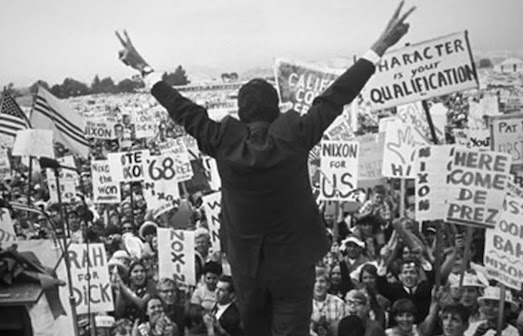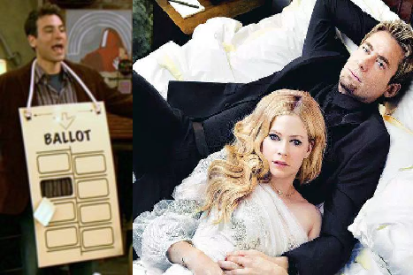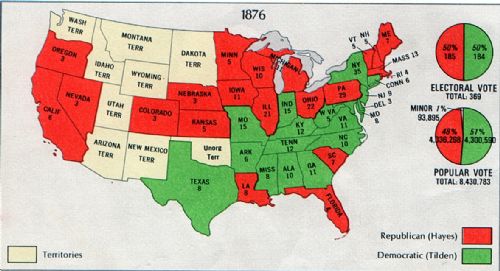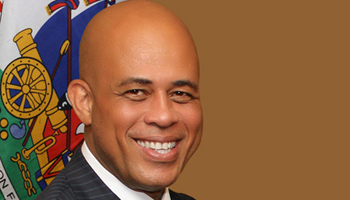For a long, long time, there have been candidates for political office that seem to be involved simply to mock the whole process. Some, like Chris Grayling, accidentally find their way into high office. Others, however, are doing it deliberately – be it to mock the excesses of a bloated political system, torment a rival, or simply to get their fifteen minutes of fame. From punks to muppets, it would not be democracy without the oddballs. And the most famous of all (right now, at least) is Lord Buckethead.
Alcohol for All!
Ever since there have been mass-participation elections there have been those who have stood apart from the rest. To take candidacy to its extremes is, in itself, a brash and outrageous expression of the very freedom to run for office – that punk ethic of “I can do it, so I will.” This was the drive behind the myriad of fermented parties that brewed up following the collapse of the Soviet Union. There was the Polish Beer-Lovers Party, a similarly titled affair in Belarus, and the Friends of Beer Party in the Czech Republic. Although most were a blend of libertarianish-license lovers and satires on the explosion of new parties after the wall came down, the Polish incarnation also aimed to promote English beer culture as a means to reduce vodka-fuelled alcoholism.
The ‘90s also saw the return of an older Austro-Hungarian frivolous tradition that was just as boozy but not so light on the creativity. Yes, there was the all-too-brief return of the brainchild of Czech anarchist and great wielder of farce Jaroslav Hašek – The Party of Moderate Progress Within the Bounds of the Law. The group first sprouted in the 1900s, and ran in the Vinohardy District during the 1911 Austro-Hungarian elections beneath the shining light of “Moderate Progress,” a philosophy still deeply popular with Observer writers, and summarised as follows:
“The Svatopluk Čech Bridge was not built overnight. First Svatopluk Čech had to be born, become a famous poet, die, then there had to be an urban renewal, and only then was the Svatopluk Čech Bridge built.”
With it came famously “moderate” policies seemingly designed to insult voters and the choices they usually make, from draconian pledges like the reintroduction of slavery and the return of the Inquisition, to token giveaways such as “a free pocket aquarium” for all. Hašek’s campaign was marked by bombastic, rambling speeches: here’s some snippets.
“I became at once the victim of a slander campaign…for the opposing side has said of me that I have already been gaoled twice. My honourable constituents, I declare before you that this is a vile invention and a lie. It is quite untrue that I have been gaoled twice. I have been gaoled three times!…
…You must understand that those 1.3 sextons mean 800 votes for our candidate. You see, sextons have free access to the funeral offices and consequently to the lists of dead voters. These lists, as has been shown in the past successes of the National Freethinking Party can acquire exceptional importance on polling day.”

“He’s More Popular than the Prime Minister”
With such wild promises as “the nationalisation of janitors” or, as a frivolous British party promised in 2010, “to not raise tuition fees,” it is important not to actually win the election. But it’s happened quite a few times for our deliberate oddballs, notably in Aarhus, Denmark, home of the Union of Conscientiously Work-Shy Elements. In 1994, its leader Jacob Haugaard ran on a manifesto that, although clearly ridiculous, was largely kind-hearted and a refreshing, locally-focused contrast to his rivals. Such policies ranged from promising better weather and tailwinds on cycle paths (perhaps using some supervillainous weather machine), to playing to the work-shy core with an 888 promise – 8 hours for sleep, 8 for rest, and 8 for spare time. He also proposed the excellent policies of better Christmas presents and shorter shopping queues, among others.
“If work is so healthy, why not give it to the sick?”
He won.Whoops.However, Haugaard took it in stride. After winning, he said “I don’t know anything about politics. Now I get an education in how it works – with full salary!” Deciding to now “take the cotton out of my ears and put it in my mouth,” Haugaard went on to serve his constituency diligently. In a hung parliament, his vote mattered, and he treated that duty with great care.

What’s more, he actually delivered on some of his campaign promises. Whilst there is no evidence the weather actually improved in Denmark during the ’90s, Haugaard did provide more bread for Aarhus ducks, Nutella rations for the Danish army, and a public toilet in his local park, where he had also (in a classic oddball candidate move) splurged his state funding on a post-election party for those mad enough to support him. Although Haugaard reckoned his vote should warn the world that any old populist crumbum could gain power in the right circumstances (dodged a bullet there), I think it shows that sometimes the best representatives come from the left-field.
Will the real Maxime Bernier please shut up?
Canada’s Rhinoceros Party sought to avoid the problem of winning by promising to immediately dissolve parliament if it won parliament, as elections were “so much fun” that “we should have them all the time” (clearly the Conservative Party agrees). However, it is worth noting that the party’s motto is a promise not to keep any promises.
The Rhinoceros Party is one of the world’s oldest nonsense parties, founded in the 1960s by Quebecois Doctor Jacques Ferron, named in honour of Cacareco, the rhino elected to office in Sao Paulo, 1958, and originally led by Cornelius the First, local zoo rhino. Now in its third incarnation, the Rhinos’ pledges over the years have included annexing both the UK and the US, repealing the law of gravity, declaring war on Tintin because of his Rhino-killing ways, and privatising the Queen (makes sense to me).

This year, the Rhinos ran to sabotage far-right Quebecois leader Maxime Bernier by running against him a guy called…Maxime Bernier. “If you’re not sure,” the latter Bernier suggested, “vote for both!”Canada is rich is oddball politics, and the Rhinos are rich in company in the history of such parties. A personal favourite of mine was the Canada Extreme Wrestling Party, founded in Newfoundland in 1999. The leadership was decided via Battle Royale, as 11 wrestlers faced off in the ring for the honour of leading the party. Quentin Barboni took the spoils, but their first candidate was WWF superstar Ed “Sailor” White – the Moondog King.
Don’t Blame Me, I voted for Mr Fish Finger
Britain, like Canada, also has a well-stocked history of frivolous candidates. Our preposterous first-past-the-post system allows for a lot of “wasted votes,” wherein a voter’s power is greatly diminished in “safe” seats defined by overwhelming popularity toward one party. It is easier, in these moments, to lend your vote to silliness, perhaps to protest against this fault in representation, or else to gift it to a little bit of comedy.In this endeavour, the Official Monster Raving Loony Party has flown the flag for decades. Its origins lie in Screaming Lord Sutch (3rd Earl of Harrow)’s Teenage Party of the 1960s, that campaigned for a lower voting age. After this happened, Sutch vanished for a while, resurfacing in the 1980s as head of the Monster Raving Loonies, a joint venture between Sutch and some graduates of the “Raving Loony” Oxbridge tradition.
Their successes, such as hammering the final nail into David Owen and the SDP, and originating the idea for pet passports and late drinking licenses, are well-known. The group, having been through numerous splits and the untimely deaths of Sutch and its second leader Catmando, is still going, under the guidance of Howling Laud Hope, and an institution in British political spheres – releasing its policies rapid-fire under the Manicfesto moniker. However the Loonies’ longstanding brand, especially since the Sutch days, has been accused of being somewhat stranded and stagnant, shown in its recent development of an unexpectedly earnest nature towards Brexit and Piers Morgan.
The prime stage for lunatics and oddballs is the Prime Minister’s seat in a General Election. Alongside the ever-present Lawd Hope, you will usually find some flamboyantly dressed character (or creature) who, for £500 well spent, has the opportunity to get on TV and, as a happy consequence, make the PM and first-past-the-post look a little bit ridiculous. It was in Thatcher’s Finchley seat in 1987 that Lord Buckethead graced us with his presence.
Lord Buckethead is the villain of the awful and wonderful low-budget ’80s 3D Star Wars knock-off Gremloids. He first inhabited the body of one Mike Lee, who promised to demolish Birmingham to build an intergalactic spaceport (I’ll compromise with Solihull). Lee came back to face John Major in 1992, before putting his bucket out to pasture.Our dear leader found a new host in 2017, in Jonathan David Harvey, who set off to Maidenhead to take on Theresa May. In this election, he was in crowded company. In Maidenhead he was challenged not only by Lawd Hope but a terrifying man-sized Elmo. Elsewhere frivolous candidates included Mr Fish Finger, a personal hero of mine, on a committed quest to prove that Tim Farron was less popular than a fish finger, and Gavin Barwell, who completed his performance art piece by losing his seat after publishing a book entitled “How to win a marginal seat.”

Buckethead stood out, of course. It was a combination of the utter obscurity of the reference (yet replete in political tradition), Harvey’s clowning in the count room and an engaging manifesto that brought him to international fame.
Harvey had decided to stand after watching Gremloids one evening and discovering Lee’s candidatures in a post-movie trivia hunt. “Wouldn’t it be funny to bring him back?” He thought.

Harvey’s Buckethead had perhaps the most endearing manifesto ever promised by an Oddball. Under his “Strong, not entirely stable” leadership and a mix of progressive populism, eccentricity and megalomania, Buckethead made pledges from the nostalgic “bring back Ceefax” to the universalist aims of nationalising Adele and banishing Katie Hopkins to the Phantom Zone. Even policies he stood to gain from were slanted in a moral manner, from abolishing the House of Lords (except for Lord Buckethead) to banning arms sales to Saudi Arabia (in order to sell arms to Lord Buckethead). Best of all was an earnest pledge to regenerate the shopping centre in Maidenhead.
The Tragedy of Lord Buckethead, or, The rise of Count Binface
Harvey, now an overnight sensation, next appeared in Glastonbury with the Sleaford Mods. But unfortunately he had drawn the attention of Todd Durham, the creator of Gremloids. Since the ’80s, Durham had since founded the $1bn Hotel Transylvania franchise. He saw it fit to sue Harvey for copyright and banned him from using Lord Buckethead and his image. Now Lord Buckethead™, Durham still deploys his character in UK politics (and hijacking a buzz Harvey created), but the villain has now adopted a decided pro-EU agenda, largely seen raising funds for People’s Vote campaigns. More recently, Lord Buckethead™ has joined the Monster Raving Loonies.
Harvey, although regretful, had accepted Durham’s claim and had announced his retirement from running for office. It felt as if the tragedy of Lord Buckethead is the tragedy of UK politics today – money wins (Goodnight, Sweet Prince). But Harvey was not done yet. Last month, a mysterious new challenger appeared in the West London suburbs – one Count Binface.
Harvey, after an “unpleasant battle on Planet Copyright,” had returned “like Anthony Joshua” to triumph over Boris Johnson. Count Binface’s manifesto repeats the desire to bring back Ceefax and nationalise Adele, but also promises to ban arms sales to all repressive regimes and abolish the Lords, alongside renaming London Bridge “Phoebe Waller Bridge”. At the same time, he has expressed surprise that Lord Buckethead™ had joined the Loonies, having expected him to take over Change UK, and hopes to catch up with Elmo once again on election night.
“It’s time for surreal change.”
Even in the misery of our times, the oddball tradition is alive and well. As Dr Sophia McClennen argues, it does not drive cynicism but in fact harnesses it to fuel engagement. Alongside, in its own way, it echoes Stanley Kubrick’s insistence that “however vast the darkness, we must supply our own light” by providing a bit of humour and, in the case of Harvey’s characters, kindness from the most unlikely source. He also reminds us that Oddballs can serve a moral purpose – wrapping important messages, lost among the muck-racking and Tory lies that have dominated this campaign, in an eye-catching package.

However, if you are in Uxbridge and South Ruislip, PLEASE do not vote for Count Binface, or Lord Buckethead™, or Elmo. Uniquely, in 2019, the PM’s seat is in play. Votes here matter more than perhaps any vote anywhere in Britain, past or present. There is a Dark Lord to be felled far more dangerous than any Gremloid, or creation bearing no actual resemblance to said Gremloid. That is Boris Johnson. There is a chance to unseat him here and blow up the Death Star.
For the love of Cacareco, do not waste this opportunity.











